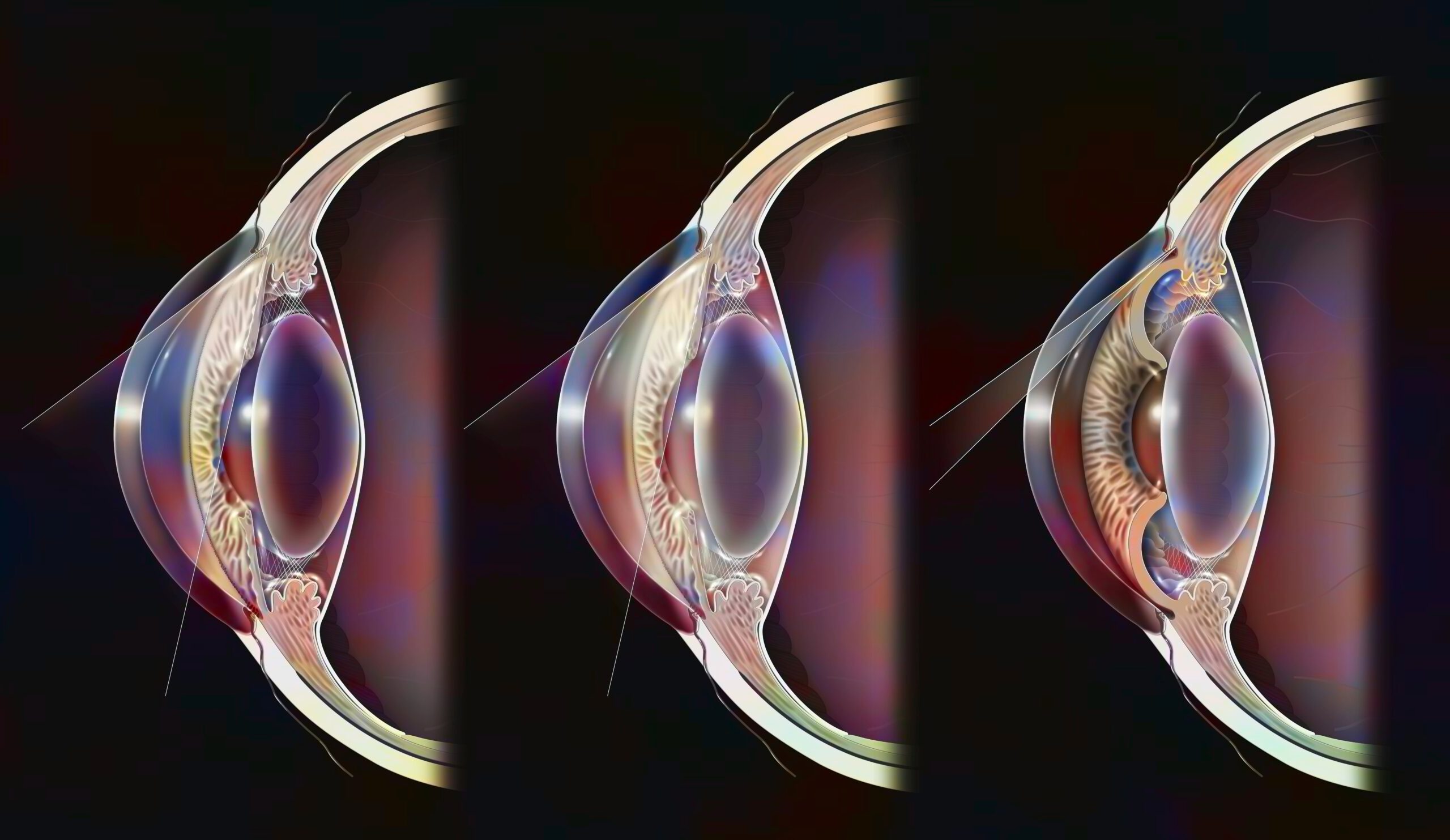What is glaucoma?
Glaucoma is a group of eye conditions that damage the optic nerve, which connects the eye to the brain. It can progress without noticeable symptoms until significant vision loss occurs. If left untreated, glaucoma can lead to permanent blindness.
Types of glaucoma
There are several types of glaucoma, with the two most common being:
- Open-Angle Glaucoma: This is the most prevalent type. It can lead to increased intraocular pressure (IOP) and optic nerve damage.
- Angle-Closure Glaucoma: This occurs when the angle between the iris and cornea narrows, causing a sudden increase in IOP.

Comparison between a normal eye (left), with open (middle) and closed (right) angle glaucoma.
What are the symptoms of glaucoma?
In the early stages, glaucoma may not present any noticeable symptoms. As the condition progresses, you might experience:
- Peripheral Vision Loss: Gradual reduction of your side or peripheral vision.
- Tunnel Vision: A sense of looking through a tunnel, as central vision remains relatively intact.
- Blurred Vision: Vision that appears foggy or blurred.
How is glaucoma diagnosed?
Glaucoma is diagnosed through a combination of tests:
- Tonometry: Measures IOP to determine if it's elevated.
- Ophthalmoscopy: Examines the optic nerve to check for signs of damage.
- Perimetry (Visual Field Test): Measures your field of vision to detect any peripheral vision loss.
- Optical Coherence Tomography: This scan can look at the optic nerve and detect changes caused by glaucoma.
- Gonioscopy: Evaluates the drainage angle of the eye to determine the type of glaucoma.
Managing glaucoma
While there is no cure for glaucoma, there are treatments that manage the condition and prevent further vision loss:
- Eye Drops: Medicated eye drops are often prescribed to lower intraocular pressure.
- Oral Medications: In some cases, oral medications may be prescribed to reduce IOP.
- Laser Therapy: Laser procedures, such as selective laser trabeculoplasty or iridotomy, can help improve drainage and lower IOP.
- Surgery: Surgical options, like minimally invasive glaucoma surgery, are considered if other treatments are ineffective.
- Regular Monitoring: Regular eye exams are crucial to monitor the progression of glaucoma and adjust treatment plans accordingly.
Preventing vision loss
Since glaucoma often develops silently, regular eye exams are essential, especially if you're at a higher risk due to age, family history, or other factors. By detecting glaucoma early, you can take steps to preserve your vision and maintain your overall eye health.
Remember, if you have any concerns about your vision or are at risk for glaucoma, it is crucial to consult an ophthalmologist, such as Dr John Chang, for proper evaluation and personalised guidance.

